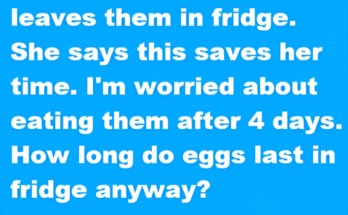9 Signs Your Adult Children Secretly Resent How You Raised Them
1. They never ask for your advice or help.
Generally, we turn to those we trust when we’re facing important decisions—people whose guidance we believe comes from a place of care and experience. So, when your adult child consistently makes significant life choices without involving you, it may be a sign that they’re intentionally keeping your influence at arm’s length.
You might long to support them through job changes, relationship ups and downs, or financial troubles, but find yourself completely left out. Even when you offer advice without being asked, it’s often met with polite but clear resistance—your input is dismissed before it’s even fully heard.
This distance may come from a lack of trust in your judgment, especially if their upbringing felt unstable or if past decisions you made didn’t inspire confidence. Whatever the cause, if these feelings are never acknowledged or talked through, they can continue well into adulthood.
2. They raise their own children in the opposite way they were raised.
When people become parents, they tend to adopt the methods that felt right in their own childhoods and avoid those that didn’t. So if your adult child’s parenting style is completely different from yours, it may suggest they were dissatisfied with aspects of how they were brought up.
For instance, if you were strict about academics, they might now prioritize emotional well-being and free play over school performance. On the other hand, someone who grew up with very little guidance might now be extremely involved and attentive to their own children—making up for the structure or presence they once lacked.
While this shift may seem like a form of rebellion, it’s often something deeper: an intentional effort to provide their children with what they themselves wished they had received.
3. They make indirect remarks about the past.

In conversation, your adult child might drop subtle comments about their childhood that carry an undercurrent of hurt. These remarks might come off as jokes, but there’s usually a serious truth behind the humor.
For example, during a discussion about someone’s promotion, they might say something like, “Must be nice to have your achievements recognized,” with a pointed look your way. Or when talking about how they handle their own kids’ emotions, they might mention, “I actually listen when my children are upset.”
These comments, though wrapped in sarcasm or laughter, often reveal long-standing emotional wounds. They may not feel ready—or safe enough—for a direct conversation, so instead they express their feelings in veiled, emotionally charged remarks.
4. They react strongly to familiar parenting behaviors.
If your adult child carries lingering pain from their upbringing, you might notice that even well-meaning comments—like offering “helpful” feedback—are met with unusually sharp or defensive reactions.
Experts suggest this is because those moments feel like emotional flashbacks. Being reminded of past criticism or control brings them right back to when they felt powerless or judged as children. So while their reaction might seem exaggerated to you, it often stems from unresolved wounds that haven’t fully healed.
What may appear to you as hypersensitivity is, in reality, a sign that something from the past still feels raw—something they may not yet know how to talk about or move beyond.
5. They enforce strict rules around your involvement with their children.
If your parenting style hasn’t changed much over the years, you might find that your adult child limits your access to your grandchildren—or keeps you under close watch when you’re with them.
This kind of guarded behavior often reflects deeper trust issues. It can feel like you’re being supervised more than included, and when visits do happen, you’re expected to follow boundaries that may go directly against how you once raised them.
At the heart of it is a deep protective instinct. Your adult child may be trying—consciously or not—to prevent their kids from experiencing the pain or discomfort they once felt. Whether or not this level of caution is truly necessary, it’s being driven by unresolved hurt, not just by parenting preferences.
6. They rarely credit their upbringing for their successes.

When your adult child reflects on their achievements, the praise often goes to outside influences—teachers, coaches, friends, or even sheer self-determination. You may notice that any positive role you played is minimized or left out entirely.
They might frame their accomplishments as things they achieved in spite of their childhood, not because of anything you provided. And when asked directly, they may struggle to identify what was good or beneficial about the way they were raised.
This doesn’t mean their childhood lacked all value. It simply means the emotional pain still overshadows the positive. When the hurt is unresolved, it becomes hard for someone to hold both good and bad memories at the same time—so they focus on what felt missing, rather than what was given.
7. They revisit specific childhood moments you thought were long forgotten.
You may be surprised when your adult child brings up incidents from the past that seemed insignificant—or that you assumed were resolved long ago. Perhaps they mention a missed recital, a punishment they viewed as unfair, or a moment when they felt dismissed.
To you, these memories may seem minor, or even understandable given the circumstances. But to them, those events may have carried emotional weight far beyond what you realized. The fact that they still come up suggests they were formative experiences—ones that shaped how your child felt seen, heard, and supported (or not).
It’s not always about “bad parenting.” Life circumstances may have been tough, and you did your best. But kids don’t always see the context—only the emotional impact. The gap between your perspective and theirs highlights just how differently those years were experienced.
8. They avoid the family traditions they grew up with.
If holidays and special occasions from their childhood were marked by stress, rigid expectations, or a lack of joy, your adult child may now go out of their way to do things differently.
Rather than adapting old traditions, they might start new ones entirely—ones that feel more relaxed, inclusive, or aligned with their values. This change isn’t necessarily about rejecting you personally; it’s about stepping away from patterns that felt performative or painful.
When family rituals are replaced instead of continued, it’s usually not about disliking the traditions themselves, but about avoiding the feelings those traditions once evoked—pressure, conflict, or emotional absence.
9. They turn to others for emotional support and guidance.
Not only do they avoid coming to you for advice—they often seek comfort, validation, and mentorship from other adults outside the family. This could be a trusted professor, a friend’s parent, a therapist, or a colleague who fills the emotional role you might have hoped to hold.
These surrogate parent-figures often provide the support your child felt was missing growing up. When they choose to share meaningful life updates or look for guidance from others first, it’s usually a sign of emotional needs that were never fully met at home—whether through lack of presence, warmth, or understanding.
It’s not always a conscious rejection, but the strength of these outside relationships often reveals how deeply they craved the kind of connection they didn’t receive from you.



